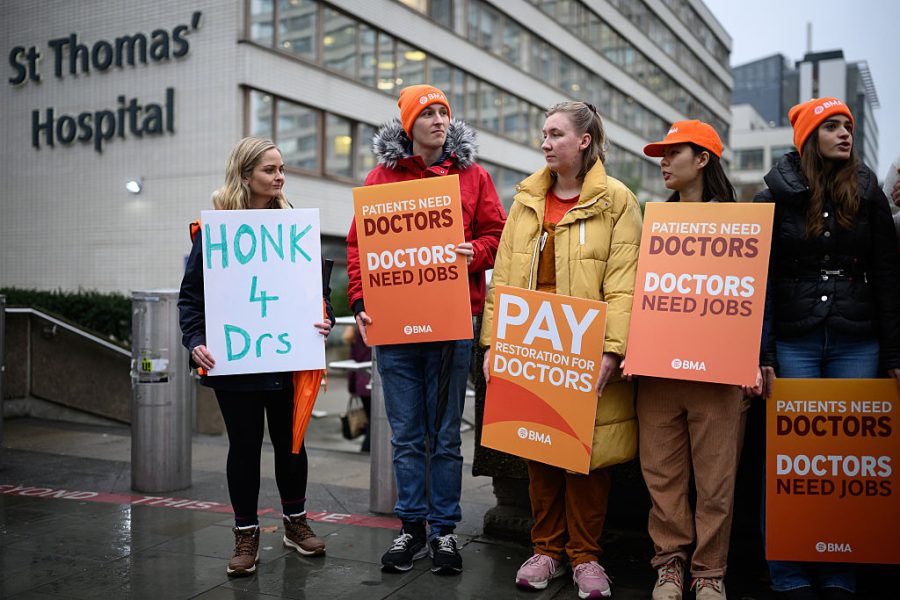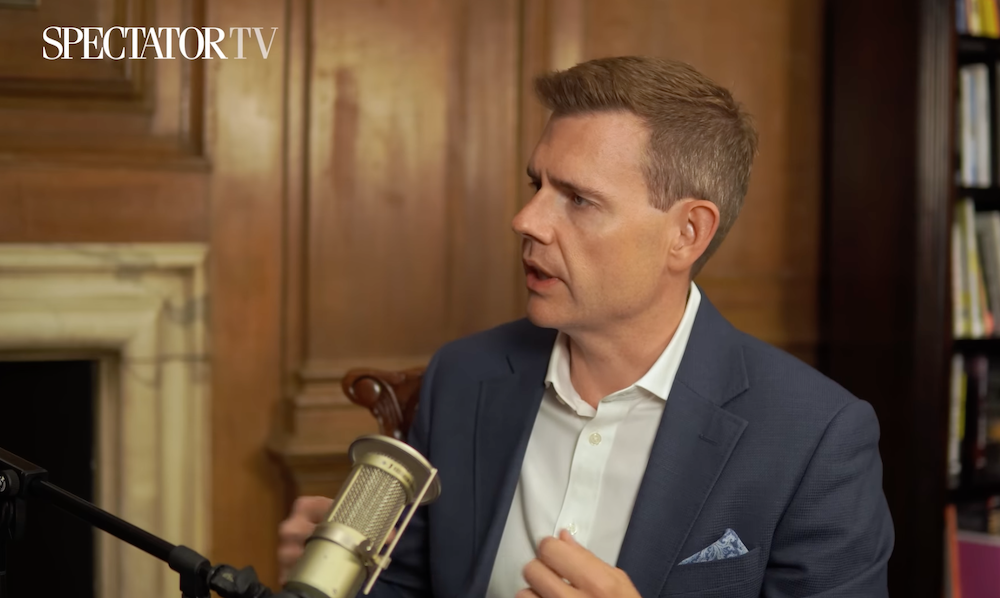I know doctors have a long training and have to absorb a lot of knowledge before they are let loose in a surgery or a hospital ward, but still there is one extra module which needs to be inserted into their schedule: one on the public finances. In fact, maybe just give them an afternoon off to read the papers.
For the past couple of months we have had almost daily briefings from Number 11 floating the ever-more desperate ways in which Rachel Reeves is flirting with raising taxes to fill her fiscal black hole. The bond markets are flickering at every suggestion, weighing up the risk that Britain is thrown headlong into a fiscal crisis if it doesn’t seek to reduce £160 billion a year in public spending. Yet that hasn’t stopped the junior doctors from going ahead with a five-day strike, bleating that a 29 per cent pay rise over three years is not enough. Now consultants, who are supposedly older and wiser, are thinking of joining in, too, by striking in January.
The militant leadership of the BMA seems finally to have been exposed
Where do they think the money would come from to pay for a further 26 per cent pay rise, as the junior doctors are demanding? Ultimately, it would come out of their own pockets. Time was when the most militant trade unions represented low-paid workers; not any more. Doctors are among the highest earners in the country – it is they who are going to get clobbered to fund extra public spending and the higher interest bill as public debt spirals further out of control.
Some doctors, at least, seem to be ignorant of the fiscal situation. According to a poll for the Times this morning, only a third of junior doctors actually back this week’s strike, while 46 per cent say it should be called off. Public support has fallen, too. The militant leadership of the BMA seems finally to have been exposed.
The trouble is that when trade union leaders embark on a battle like this, history teaches us that they tend to fight on until the death, regardless of the effect on their members. Does the BMA really want to bring down a weak Labour government and find themselves having to deal with what would almost certainly replace it were an election to be held now: a Reform UK government with its UK Doge? Reform UK has dallied with some left-wing economic policies over the past year, including proposals to nationalise the steel industry and ultilities. But it is a fair guess that well-paid doctors would not rank highly among the groups it wished to reward.
The BMA likes to try to make out that doctors have fared worse than other professions over the past 15 years – its website makes the unsubstantiated claim that ‘the average pay for those in comparator professions has increased by 80 per cent [since 2008] but the average consultants pay only by 30 per cent’. They don’t tell us where that comes from, but you get a very different picture if you look at the Higher Education Statistics Authority’s figures for salaries among graduates who took a first degree in 2022/23. Those who studied medicine and dentistry are absolutely at the top, with median earnings of £37,924, way ahead of veterinary sciences (£33,750), engineering and technology (£31,975), computing (£30,998) and law (£25,305).
Yes, these are the junior doctors who are trying to tell us they are less well-paid than baristas. There may be high flyers in the other professions who earn substantially more, but studying medicine is a more assured way of setting yourself up for a well-paid career than any other subject. If they are expecting bottomless sympathy from other workers, they may be disappointed.








Comments